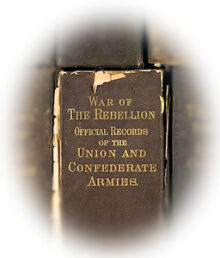HEADQUARTERS C. S. ARMY,
Charleston, S. C., March 6, 1861.
SIR: In obedience to War Department orders of the 1st instant I arrived at this place on the 3d instant, and immediately reported to Governor Pickens for military duty. That day we inspected the floating battery now being constructed here. On the 4th instant we inspected the works on the southern portion of the harbor (Morris Island and Fort Johnson) and yesterday those on the north (Fort Moultrie, &c., including Castle Pinckney).
I have now the honor to state that I coincide fully in the opinion and views contained in Maj. W. H. C. Whiting’s letter preceding his full report, and that, as I have not time to write more fully on the subject, I desire that portion of his letter referring to the above works should be annexed to this report, and a copy thereof sent to me for my files.
On Morris Island the flanking defects are being remedied, and will probably soon be completed, as well as the position, &c., of said works will permit. I have ordered that only six mortars, instead of twelve, intended for that point, should be put in position there. I have ordered the construction of a series of small batteries of heavy guns, two in each, and twenty in all, well protected by traverses along the channel shore of that island, said batteries to be about fifty or one hundred yards apart (according to the nature of the ground), to prevent the broadsides of a vessel, from silencing them in a few minutes. When those batteries shall be ready, I will remove into them all the heavy guns I can dispose of. I have ordered to that island the whole of Colonel Gregg’s regiment, with two short 12-pounders and one light battery, for the protection of said works, selecting a strong natural position to protect their right flank from a land attack.
I have ordered an additional battery (for two mortars) to be constructed near Fort Johnson, to receive half of those intended for a defectively-placed mortar battery, to the south of said work, the latter not being in itself of much importance, containing only an open battery of four 24-pounders bearing on the inner harbor. At Fort Moultrie, towards the north of Fort Sumter, I have ordered additional traverses to be thrown up, of a better construction than those already there, for the protection of the channel guns against enfilade from Fort Sumter. Between Moultrie and the western extremity of Sullivan’s Island I have ordered the construction of a four-gun concealed battery, to enfilade the channel face of Sumter, having nine or ten guns (en barbette) bearing on the Morris Island works. I have ordered two more 32-pounders to be added to the extreme five-gun battery, commanding the Maffitt or northern shore channel into the harbor, and I have selected the site of two more mortar batteries, of two each, to take in reverse the casemate and barbette guns of Fort Sumter bearing on Morris Island.
I have fortunately found that we would soon have mortars enough for all our present wants; but, generally, the carriages and chassis of nearly all the guns, especially those on the Morris Island works, are either defective or not of the proper kind. I am going to remedy this defect as soon as practicable.
I find that the gorge of Fort Sumter is too much inclined to the guns on Morris Island to be breached by them at this distance (thirteen hundred yards); and, moreover, they have double the number of guns bearing on them, reversing thereby the advantages of the attack over the defense. If we succeed in constructing my enfilading battery on Sullivan’s Island we will then have a preponderating fire against said gorge wall (four feet six inches thick); but, as already stated, at about thirteen hundred yards, and at an angle of about fifty degrees.
I find that the battery of heavy guns (10-inch columbiads), which I proposed putting up in the vicinity of Fort Johnson, would be impracticable (if we had said guns), the grounds being too low and marshy.
I have now given you a general view of the condition of the offensive works of this harbor, and I am of the opinion that, if Sumter was properly garrisoned and armed, it would be a perfect Gibraltar to anything but constant shelling, night and day, from the four points of the compass. As it is, the weakness of the garrison constitutes our greatest advantage, and we must, for the present, turn our attention to preventing it from being re-enforced. This idea I am gradually and cautiously infusing into the minds of all here; but, should we have to open our batteries upon it, I hope to be able to do so with all the advantages the condition of things here will permit. All that I ask is time for completing my batteries and preparing and organizing properly my command, which is still in a more or less confused state, not having yet my general staff officers around me. So soon as I shall have here a competent engineer officer (Major Whiting arrived here on the 4th, and will probably leave again for Savannah to day, where his presence is required), I will send to the department a plan of this harbor, with the position, &c., of all the works marked thereon. Those Drummond lights, ordered from New York, will be here in about ten days.
I remain, sir, very respectfully,
G. T. BEAUREGARD,
Brigadier-General, Commanding.
General L. P. WALKER,
Secretary of War, Montgomery, Ala.
